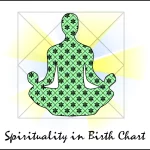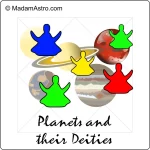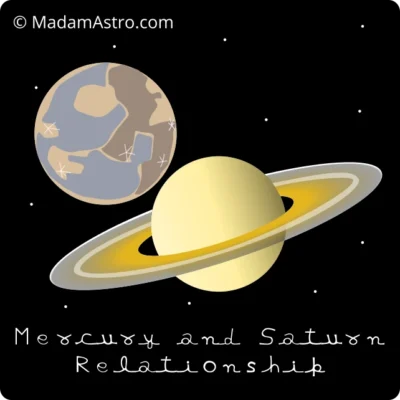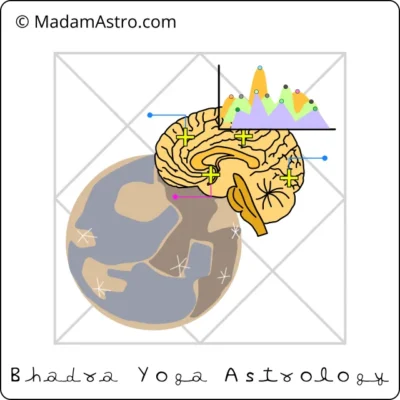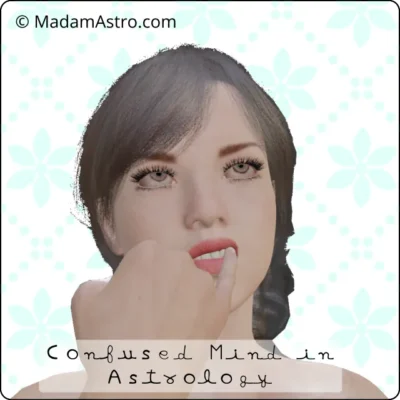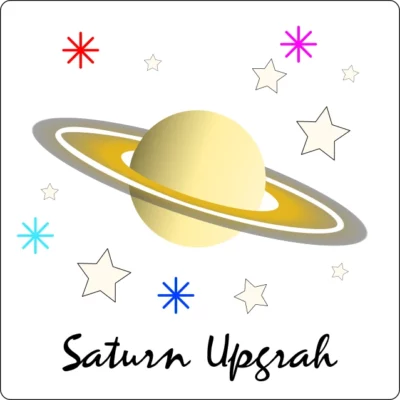A deity is a supernatural being. It is like a God or Goddess, that is worshipped by people who believe that it can control or exert it’s force on human population on earth. The word deity means an entity with divine power. It was decided by Saint Augustine, a theologian whose writings were very influential in the shaping of world existing on Earth. Some of the deities of different religions are like in the Ancient Greek religion: Zeus, Apollo, Athena, Ares, Aphrodite, Poseidon, Hades, Thanatos, Dionysus, Hera, Artemis, Hephaestus, Hermes, nymph.
These were the deities from long time. From the Ancient Norse religion deities were Thor, Odin, Tyr, Frey, Freya, Baldur, Loki, Idunn, Njord, Frigg.Ishtar Is the Earliest Deity as Written in text as evidence. Ishtar holds a special historical significance, as she is the earliest goddess whose written evidence is available. Early Mesopotamians called her Inanna, as seen in the now extinct language of cuneiform writing, the primary form of communication in the Ancient Near East.The Trimurti are the most prominent deities of contemporary Hinduism. This consists of Brahma, the Creator, Vishnu, the Preserver, and Shiva, the Destroyer.
According to Vedic Astrology there are nine planets that effect the lives of the people and careful study of these planets in relation to 12 zodiac signs can make clear about past, present and future of any individual living on earth. These nine planets are known as the Nava Grahas. For astrological studies Sun and Moon are also considered planets. Rahu and Ketu north and south nodes of Moon are also considered planets although they are just shadow planets as fixed points on the horizon. There is a particular deity for each of these astrological planets.
Vedic Planetary deities are discussed below:
Table of Contents
ToggleSUN
It is called Surya in Hindi. Surya is the Vedic name and main deity associated with the Sun. Surya is the fire of the heavenly sphere that illuminates the whole earth. The light form of Shiva is associated with the Sun. Shiva means the “auspicious” one. Shiva is the yogi in meditation reflected by Surya, who represents the atman, the soul. Surya is the origin of all life evolved on earth. It is the source of all that exists in the universe. According to sage Parashara, the chief deity associated with the Sun is Agni, the God of fire.
Surya is also known as divya-agni or celestialPertaining to the sky or visible heaven, or to the universe … More fire. SUN is worshipped by many sacts as God. It is the main source of all forms of energy. In Greek mythology, Helios, a Titan, was the deity of the Sun. But Island of Rhodes and nearby parts of Southwestern Anatolia, Sun was considered a relatively minor deity. The Ancient Greeks also associated the Sun with Apollo, the God of enlightenment.
MOON
In Vedic Astrology Chandra is the Vedic name for the Moon. Shakti / Parvati is considered the main female deity associated with the Moon. She is the spouse of Shiva. Parvati is said to remember her previous life as Shiva’s wife, Shakti. Parvati translated as, “she who dwells in the mountains”. Such a goddess is an appropriate mate for Shiva, who also likes to dwell in mountainous regions. Another name and deity associated with the Moon is Soma. Soma is the divine nectar, the sacrificial elixir of the Gods. Soma is pictured as a priestly sage, a powerful God who is a healer of all diseases and bestows riches on the people living on earth.
He is also the father of Mercury (“Out of the Moon, the mind was born”). Mercury is mind. Sage Parashara stated that the main deity of the Moon is Varuna, who is the God of the cosmic waters. Isis, revered as the Egyptian goddess of love, healing, fertility, magic, and the moon, held immense significance in ancient Egyptian religious beliefs. Known by various names, including Aset or Eset. She was the most worshipped deity throughout Egyptian culture, even during the Greek rule of ancient Egypt.
MERCURY
Budha is the Vedic name for Mercury who gives divine intelligence (buddhi). Beyond the mind is intellect (buddhi). According to Sage Parashara, Vishnu is the main male deity associated with Mercury. He is the God of cosmic intelligence, the preserver of the universe. Saraswati, the Goddess of wisdom, communication and learning. She is the female deity with powers of Mercury. She is the Goddess of creative intelligence, music, arts, a flowing stream of inspiration like the ancient Sarasvati River from which her name is derived.
Mercury is considered the swift messenger of the ancient Gods.The Greek God Hermes (the Roman Mercury) was the God of translators and interpreters. He was the most clever of the Olympian Gods, and served as messenger for all the other Gods. He ruled over wealth, good fortune, commerce, fertility, and thievery.
VENUS
Venus is known as Shukra in Hindu mythology. Shukra actually means “semen” representing the power of fertility and reproduction. Lakshmi is the main female deity associated with Venus. She is wife or spouse of Lord Vishnu. She is the earth, the creation, one with all females, abundance, luxury and pleasure that is healing and revitalizing life on earth. Sage Parashara states that Indrani, Lord Indra’s spouse, is main deity of Venus. Venus is named after the Roman Goddess of love and peace. To the Greeks this was Aphrodite, to the Egyptians the Goddess Isis and to the Phoenicians the goddess Astrate.
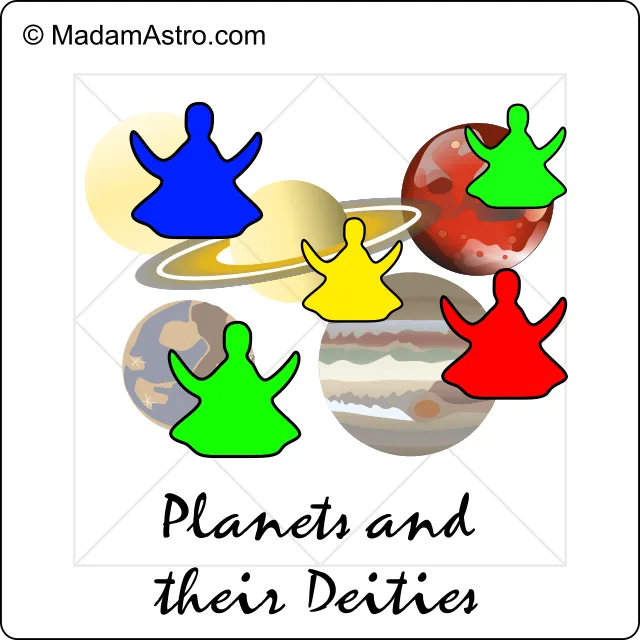
MARS
Mangal or Kuja are the Vedic names for fiery planet Mars. The main deity for Mars is Subrahmanya or Skanda. He is the adolescent Kumara, the son of Pleiades (Kartikeya), ruling the armies. According to sage Parashara, Kartikeya is the chief deity associated with Mars and was Shiva and Parvarti’s second son. Rudra, the God of storms, is also mentioned as warrior God or deity of Mars. Under the influence of Greek culture, Mars was identified with the Greek God Ares, whose myths were reinterpreted in Roman literature and art under the name of Mars.
JUPITER
Guru is the Vedic name for the great benefic planet Jupiter. The primary deity for Jupiter is Brihaspati, the teacher of the Gods, who is known for his divine intellect and speech. Brihaspati, the God of asceticism and the lord of speech is considered an incarnation of Brahma, the creator. Ganapati or Ganesha is sometimes identified as the Great deity, Brahaspati. Ganapati is also considered as a God of Learning and “remover of obstacles”.
Ganesha’s wives are Success (Siddhi) and Prosperity (Rddhi). Sage Parashara says Indra is the main deity associated with Jupiter. Jupiter was the Roman God of the sky and of thunder. It was considered as the chief Roman god, he was the king of a pantheon of dozens of deities, including Neptune, Mars, and Venus. The deity Jupiter was closely connected to the Greek deity Zeus.
SATURN
Saturn is the planet of truth and is called Shani in Vedic language. Its deity Shani Dev is male deity and is the dark side of Shiva, the destroyer. He destroys Kama (desire) through it’s evil power/eye. The female deity associated with Saturn is Kali. She is adorned with a necklace of skulls around her neck, which represents the heads of ignorance that She has removed. Shani and Kali are often dressed in black or dark blue and are associated with spritual discipline and asceticism. Yama Devta is also associated with Saturn as a planetary deity.
RAHU
Rahu is considered the dragon’s head or north node of the Moon. Rahu is thought to be anti-God and a bitter enemy of the Moon (Chandra). Soma, the Moon God detected Rahu disguised as a God receiving the Amrit the nectar of life. Rahu’s head was cut by Vishnu, the preserver; but since it had drank the divine nectar it had everlasting life. As a revenge, Rahu tries to harm the Moon when it is full. This is the story of the eclipses.
Durga is considered the main female deity associated with Rahu. She is a fierce warrior, battle queen and saviour of her devotees. Phra Rahu is worshiped at many temples throughout Thailand, the most famous of which is Wat Srisathhong in Nakhon Pathom Province.
KETU
Ketu is the dragon’s tail or south node of the Moon. The deity associated with Ketu is Rudra, the lord of the storms who gives misery to living beings on earth. Ganesha is sometimes associated with Ketu as deity of enlightenment. Ketu is called the moksha karaka planet, the chaya graha (shadow planet) of spiritual liberation. Ketu is also considered a monster that gives birth to comets and meteors. It resembles Mars and has spiritual warrior quality. In Western Astrology, Ketu is known as tail of Dragon. Cauda is also another name of Ketu as per western astrology.


